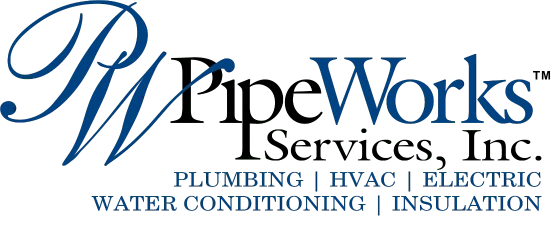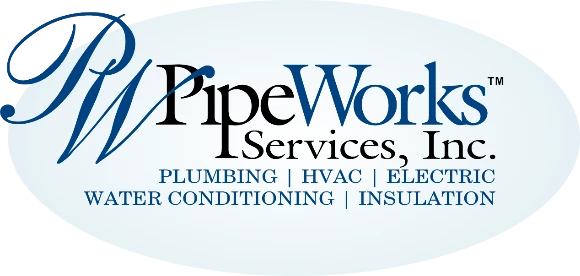Like other gas-fueled appliances, a gas boiler can be adapted to burn natural gas or propane gas.
Most gas boilers don’t boil water; they just heat it. The hot water is then pumped to radiators, under-floor tubing, or a heat exchanger.
 In a duct system, all of these heating systems are referred to as “hydronic” (water-based) heat. A gas boiler that’s more than 10 years old can be operating inefficiently even when functioning perfectly because, relative to modern high-efficiency equipment, it was designed inefficiently.
In a duct system, all of these heating systems are referred to as “hydronic” (water-based) heat. A gas boiler that’s more than 10 years old can be operating inefficiently even when functioning perfectly because, relative to modern high-efficiency equipment, it was designed inefficiently.
Today, new gas boilers are available that operate at 90% efficiency or more. Pipe Works Services can evaluate your current heating system and provide a quote on a super-efficient system that will save you money.
Gas boilers provide multiple options
Wall-mounted radiators and hot water baseboards use their boiler-supplied hot water to warm rooms by radiation and convection. Hot water circulating in under-floor tubing turns the entire floor surface into a giant radiator. A gas boiler can also supply a forced-air heating system (referred to as “hydro-air”) with hot water for its heat exchangers.
Direct-vent boilers are a great way to upgrade your energy efficiency. If you have an older boiler, it will have a metal flue that is connected to a chimney. This type of boiler relies on natural “atmospheric” combustion. In contrast, a gas-fired, direct-vent boiler is designed to extract more heat from a given quantity of fuel. So much heat is extracted that the flue gases are cool enough to vent outside through a plastic pipe.

No chimney is required. Direct-vent gas boilers will have AFUE ratings in the 85%-90% range — much better performance than you could expect from an older boiler that exhausts up a chimney.
Some direct-vent boilers not only vent directly to the outside through a plastic pipe; they also get their combustion air from outside the house. This “sealed-combustion” boiler is often recommended in a house that’s been upgraded to be more airtight. The following terms are important to consider when choosing a boiler:
- BTU Output: The heat output of a boiler is listed in thousands of btus (80,000btu, for example) and denotes the amount of heat energy the boiler can produce.
- Annual Fuel Utilization Efficiency: A standard measure of efficiency for boilers and furnaces, AFUE tells you the percentage of input energy the boiler can convert to output energy.
- Combustion: “Direct-vent,” “sealed combustion” and “atmospheric combustion” boilers are available. Differences between the three types are discussed below.
Upgrade to an energy efficient gas boiler for your home today
Ready to upgrade your home’s efficiency and comfort? Pipe Works Services. can help you start saving money on your home heating costs by installing an efficient gas boiler. Call us today at (973) 657-5771 or contact us online to get started with a free estimate!
We offer all our boiler installation services in Chatham, Madison, Summit, Union, Short Hills, Basking Ridge, Florham Park, Millburn, Clifton, Somerset, and Northern and Central NJ!



